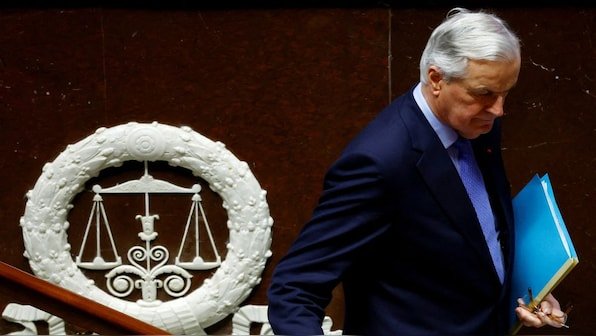
When Michel Barnier took up the job of being France’s prime minister, it was believed that he could save the European nation. However, it seems that Barnier couldn’t be saved himself after French lawmakers voted to oust him in a historic no-confidence vote.
Barnier will now submit his government’s resignation to President Emmanuel Macron, earning him the title of being France’s shortest-serving premier since the Fifth Republic, the system of government in France from 1958. Following this, the president will address the nation (scheduled for 7 pm GMT) and have the tough job of picking a viable successor with over two years of his presidential term left.
Following the historic no-confidence vote against Barnier, far-right National Rally leader Marine Le Pen said she did not “consider this to be a victory”.
“The choice that we made was to protect the French people,” Le Pen said, adding that it was not made “with a light heart”. “There was no other solution but this one,” she said.
We decode what exactly happened though — starting from the no-confidence vote against Barnier to his ouster.
Who is Michel Barnier?
Michel Barner, the 73-year-old, is no stranger to French politics. Though he was brought in as PM in September by Macron, he has previous experience in the political arena.
Previously, Barnier served as foreign minister and twice as European Union commissioner in Brussels. He is best known internationally for taking on the job of negotiating Britain’s exit from the European Union on behalf of the bloc after the 2016 referendum. Firm and courteous in talks, and hugely respected by his team, Barnier won considerable kudos for his handling of the process.
Content retrieved from: https://www.firstpost.com/explainers/michel-barnier-no-confidence-motion-ousted-91-days-shortest-serving-pm-1958-macron-13841788.html.




